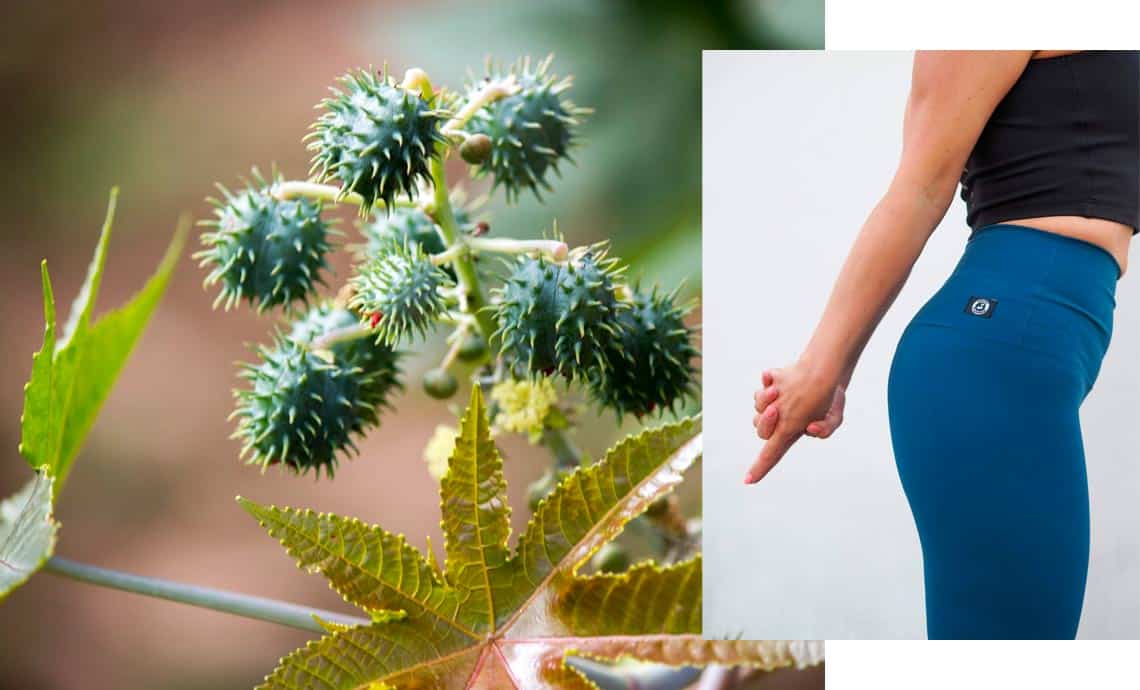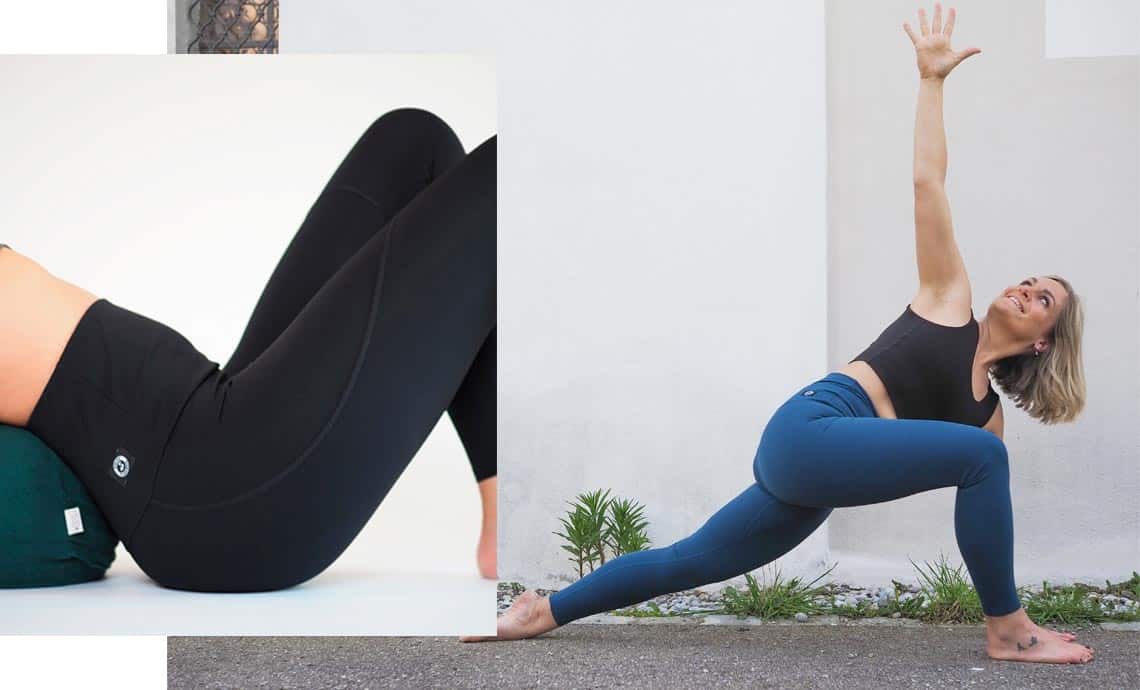If you are a yogi who loves to make sustainable choices, you’ve probably noticed the surge in yoga clothes on the market that are made from a material called “bio-based nylon,” “bio-nylon,” or “bio-based polyamide.” Castor oil plant (also called castor bean) has become one of the most popular innovative bio-based raw materials used in fabric manufacturing. As a yoga brand owner and environmental advocate, I want to share my thoughts and insights on why we choose to use fabric made with castor plant oil. So, join me as we explore the honest truth about castor oil plant -based yoga clothes.

What is castor oil plant?
First of all, let’s clarify what the castor oil plant is and why it’s considered a biobased material. The castor oil plant, also known as Ricinus communis, is a shrub that grows in dry areas that are unsuitable for agriculture. Unlike conventional synthetic fibers, which are made from petroleum-based chemicals, castor oil is made from a renewable crop. The plant is not edible and it requires relatively little water and fertilizer, making it an efficient choice for farmers. So in using it as a raw material, we’re wasting neither food nor land. The plants are chiefly cultivated in India, Brazil, or China, largely as the source of castor oil. The castor oil plant is considered a biobased material because it’s renewable. It also doesn’t compete with food crops, unlike some other biomaterials, such as corn or soy. Castor oil used in fiber manufacturing is derived from the seeds of the plant.
Is it just greenwashing?
Is using biobased materials like castor oil in yoga clothing just greenwashing, a marketing ploy to make us feel better about our buying choices without addressing the root problems?
While using biobased materials, such as castor oil plant, is a step in the right direction, we are aware that it’s not a silver bullet that can solve the problems of the fashion industry. Even if we assume that using castor oil plant for clothes is more sustainable than using fossil fuels (eg. recycled nylon or recycled polyester) or even conventional biobased materials (eg. organic cotton, lyocell) we can’t ignore the fact that there are still issues of labor rights, environmental justice, or circular economy. Using bio-based materials won´t solve neather the systemic issues of overproduction, overconsumption, and waste that are inherent in the current fashion model. We also can´t forget to consider the process of extracting the oil from the seeds and what kind of amount of chemicals, water, and energy it requires.

Yoga leggings made with castor oil plant
In any case, we’re really excited about our decision to use bio-based nylon fabric for our yoga leggings. For Arctic Flamingo, it’s all about staying open to new possibilities and being willing to innovate for the future. Our fabric supplier, Brugnoli, from Italy, provides us with a great material. Our yoga leggings are made up of 80% bio-based nylon from castor oil seeds and 20% spandex. However it’s important to stress that, in order to make skin tight clothes like yoga leggings, it is necessary to mix the main material (in this case bio-based nylon) with elastane. Unfortunately, mixing raw materials makes it impossible to recycle on a large scale with current technology. This means our leggings, or any other material mixed with elastane, can’t be a part of the circular economy.
We chose our biobased fabric from Brugnoli as it is high-tech and perfect for yoga leggings: light, stretchable, breathable, quick drying and odour inhibiting. Our yoga leggings are feather light and one of the comfiest yoga tights we have made! The material is durable and non-pilling.
What is the exact composition of the fabric we use?
A company called Fulgar has developed a biobased fiber that it has named EVO®. EVO® is produced from Evonik’s VESTAMID® Terra, a biopolyamide obtained entirely from the seeds of the castor oil plant. According to Fulgar, EVO® yarn is 100% biobased.
But it’s important to emphasize, that our leggings aren’t 100% bio-based, as the fabric is mixed with Lycra® (elasthan) to make it stretchy.

Reasons to love leggings made with biobased nylon:
- A step away from petroleum based fabrics toward renewable rawmaterial
- It is ultralight while opaque
- Rapid drying
- No pilling, no tear. Robust like any synthetic fabric.
Cons of biobased nylon made with castor oil:
- There are issues of labor exploitation, gender inequality, and land grabbing that need to be addressed. For instance, the castor oil plant is often grown by smallholders, especially women, who are vulnerable to low prices, middlemen, and lack of access to finance and markets.
- Even if the land use for growing castor oil plant can´t be used for food crop, it can compete with other uses, biodiversity conservation, or ecosystem services.
What could we at Arctic Flamingo do better?
Instead of using traditional spandex (Lycra), we could opt for bio-based spandex like ROICA V550. As a small brand, we unfortunately don’t have the means to create our own fabrics, so we rely on the innovations of our fabric manufacturers.

Posted by Inkeri, the founder of Arctic Flamingo
